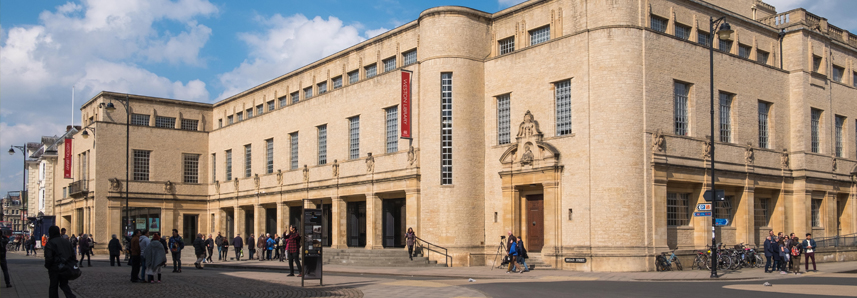
In 1953 we were both fourteen, sitting in the wonderful old library in North London Collegiate School, all oak panelling and wooden shelves, supposed to be writing essays.
My best friend leaned across the table. “I found out last night from my next-door neighbour,” she whispered. “A French kiss is when the man puts his tongue into a woman’s mouth, just like …” She blushed. “Well, just as if.”
Deeply shocked, I put down my fountain pen. “Why French?”
The blush deepened from pale pink to scarlet. “Because they’re particularly good at it.”
The teacher on duty frowned us into silence. But not before I’d decided to go to France as soon as possible to do some field research. When, four years later, I did, the kiss was not at all what I’d hoped for. You’ll have to read my Memoir to discover why.
Browsing and borrowing in libraries, and actually working in them, are totally different activities. When I was a child there were no such things as “children’s books”. I used the Edgware library – then a one-floor, one-room hut, now a major centre – on my way home to Hale Lane to borrow anything I liked the look of. Nobody ever questioned my choice.
One of the first jobs I had in Oxford as a graduate was as a trainee librarian in The Taylor Institute, the foreign languages library. Their enormous catalogues were recorded in blotchy black handwritten ink. Upstairs sat a moribund librarian who belched like an indignant rocket if we dared walk past. The Reading Room was always full of students in the pale-sweat stages of examination panic; and the Head Librarian’s Room, where books tumbled over each other as they climbed towards the ceiling, revealed chaos of the first order.
When I moved back to Reading to get married, the University gave me a job in their library. The post soon came to an end when I discovered I was pregnant. As a leaving present their Librarian gave me an enormous pile of towelling nappies. I’d have much preferred Pampas.
Living in Oxford many years later, embarking on Larkswood, my first historical novel for the adult marketplace, I needed to do serious, detailed research – and only reading back copies of The Times would fit the bill. That most marvellous of libraries, the Bodleian keeps treasured copies in enormous red leather binders. A letter from my literary agent vouched for my honourable intent as a reader; an oath of allegiance and a promise not to burn the place down accompanied my determination as I started work in the library on a daily basis. Next door, Blackwell’s supplied coffee and biscuits at frequent intervals.
After years of working on my own in tiny rooms, in control of the space, the solitude and the blissful silence, sitting in a public space alongside other rustling, whispering, computer-tapping, chair-crunching students came as a shock to the system. The treasured copies of The Times needed to be ordered in advance, volume by volume, so a planned day of research became solid weeks and more. They are not only staggeringly heavy to manipulate but priceless. Their paper is like moth-wings, their fonts so small normal eyes need a magnifying glass, and some of the most popular pages – for example, the announcement that “This country is at war with Germany” – are so threadbare they are fading into their own graves.
But order the copies I did, bursting with gratitude that such research was made possible by a team of dedicated librarians, and leaving the library every afternoon with a file crammed with invaluable handwritten notes.
Then everything began to change. By 2007 the Bodleian decided it no longer had the space to house its mountains of books within Oxford itself. Dr Sarah Thomas, a highly qualified, enormously experienced and visionary American, was hired as Bodley’s Librarian, to supervise the most enormous operation in its history. After an extensive search for suitable land and local labour, Dr Thomas found a £26million site in Swindon. An air-conditioned, state-of-the-art book storage facility was built, complete with 153 miles of shelving.
On 28 December 2011, the seven millionth Bodleian book was moved in to complete this massive undertaking. Richard Ovenden, now Bodley’s distinguished Librarian and an author in his own right, is today the owner and protector of a staggering ten and a half million books and maps – and counting. If seven million books take up 153 miles, how many more miles of shelving are needed for ten and a half? You do the maths. Answers on a postcard please.
On a day in 2012 I shall never forget, I was the first ordinary reader to be shown around the facility. Lindsay Fairns, one of their Managers, who can find her students anything they need at the drop of her mastermind hat, beckoned me into an enormous high-ceilinged cave, filled with shelves fanned with cool air and lit when you moved and needed the light.
“There she is,” Lindsay said.
And there indeed she was: a copy of my first novel for teenagers, Girl in the Attic, sitting on her own, away from my other novels, because of her size and not because of anything else.
By that time I’d written three other novels for young adults, and after years of work I’d been given a contract for two historical novels to be published by Orion. I now needed The Times for both projects, and time was of the essence. I was shown into a small private room where Lindsay had laid out several leather-bound volumes. I knew I’d never have time to travel from Woodstock to Swindon on a daily basis. Once again, I needed an Oxford library.
I reached into my handbag for my chequebook. Special requests need to be paid for. Now my expeditions to Oxford were planned on a military basis. The Times was delivered to the Vere Harmsworth Library – the Rothermere American Institute – in Parks Road. At 9.00 am every morning, to avoid the early morning rush hour, I took a taxi from Woodstock, armed with a trolley filled with notebooks, folders, pens, thermos flasks, elevenses, lunch and tea. Here I could read, think, take notes, eat lunch in the basement, brood over coffee and, my head reeling and my eyes burning, collapse in the taxi which arrived at 3.30 pm to take me home.
The librarians were outstandingly helpful. Different editions of The Times arrived on request like miraculous clockwork. And every time I opened their doors, after the noise of the journey, the bustle and traffic of the town, their walls held within them the peace and quiet that enable the working mind to settle down, to concentrate, to think, plan, read – and write.
The sound of silence was golden.
Here is a poem about my childhood:
Finding Quiet
Our voices echo in the gym and bubble over meals
We chatter as we change for games, deciding noisy deals
On who we owe the most to, or when we plan to wed:
We smoke a cough of cigarettes inside the garden shed.
The milkman’s horse comes clattering as dawn breaks through the sky:
Our front door slams, Dad’s car zooms off, relief heaves into sigh.
I call for Tessa on my way, our arguing begun,
And once at School, high ceilings hear To Be A Pilgrim sung.
In bed at night I listen as their wrangling begins –
“I want more money, darling. I don’t forgive your sins.”
I shut my ears and hope to die in case I hear them shout
But then he closes mouth. For weeks there’s nobody about.
I find long quiet moments in the gardens of my School
Beneath the spread of cedar where those prickly needles rule:
A corner in the library, a crouch beside the lake
Or writing on my own before we drink our milky break.
The silence of suburban life can wreck the human race –
“Good morning!” has no meaning if eyes never meet. My space
For finding quiet lies within the life behind my eyes
Where gardens matter most because a garden never lies.

